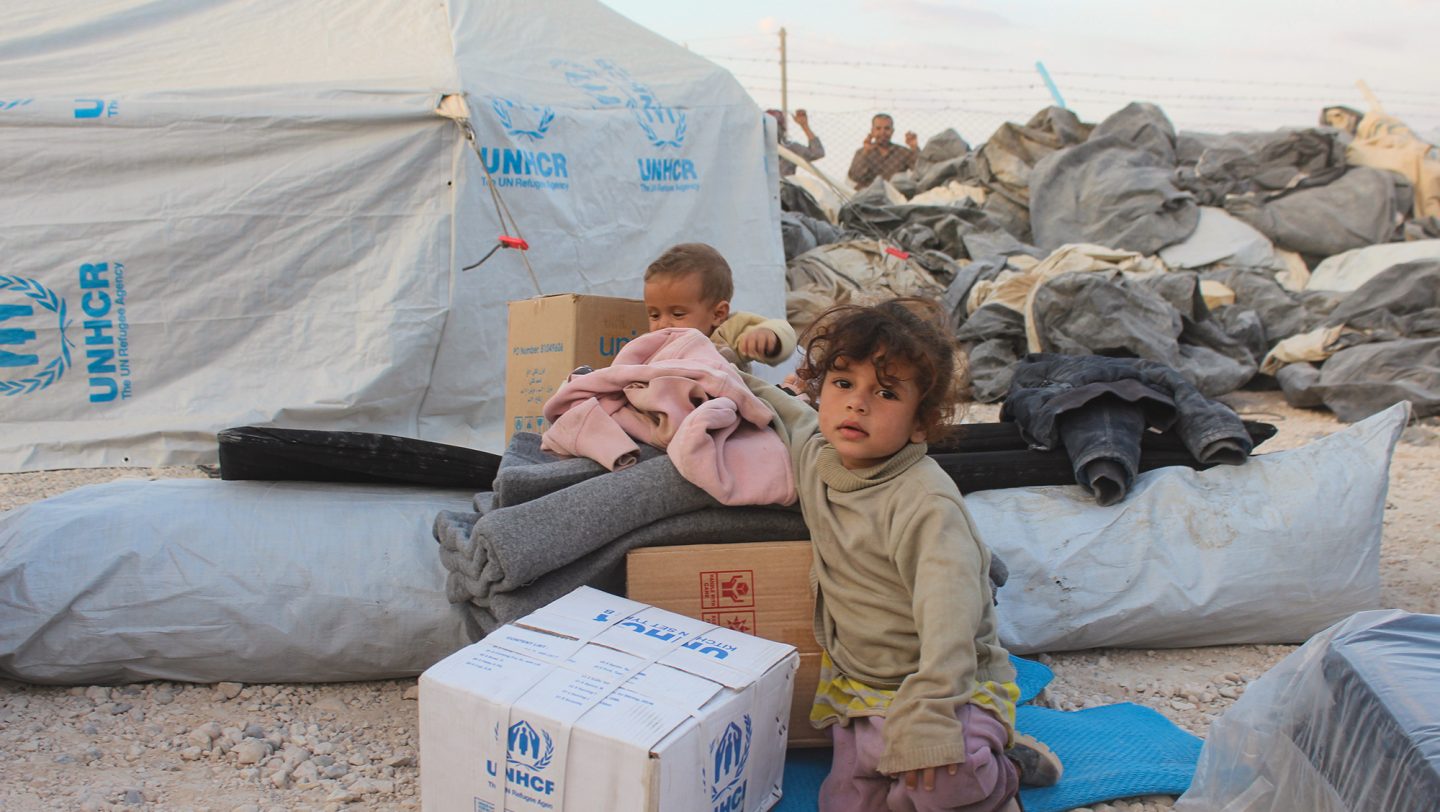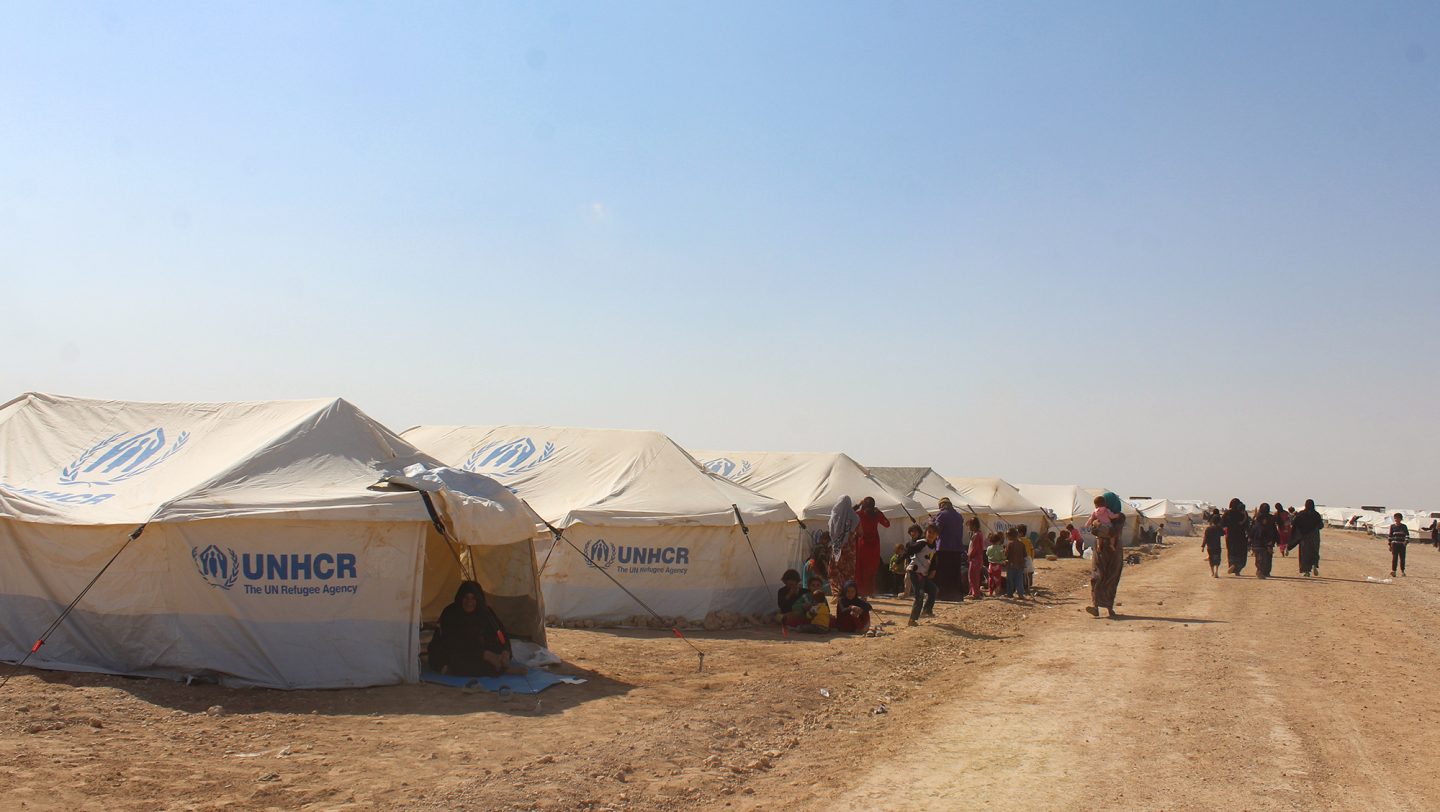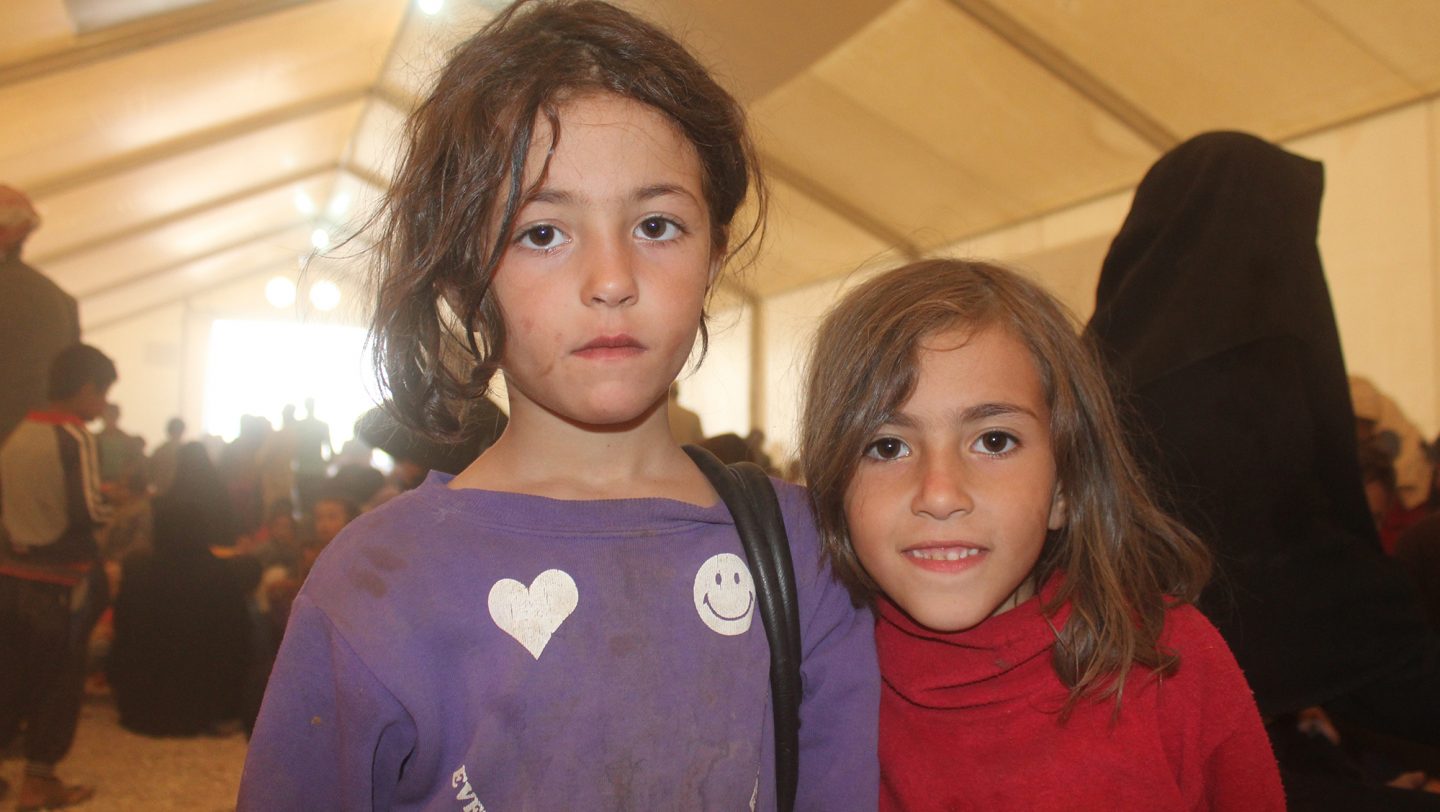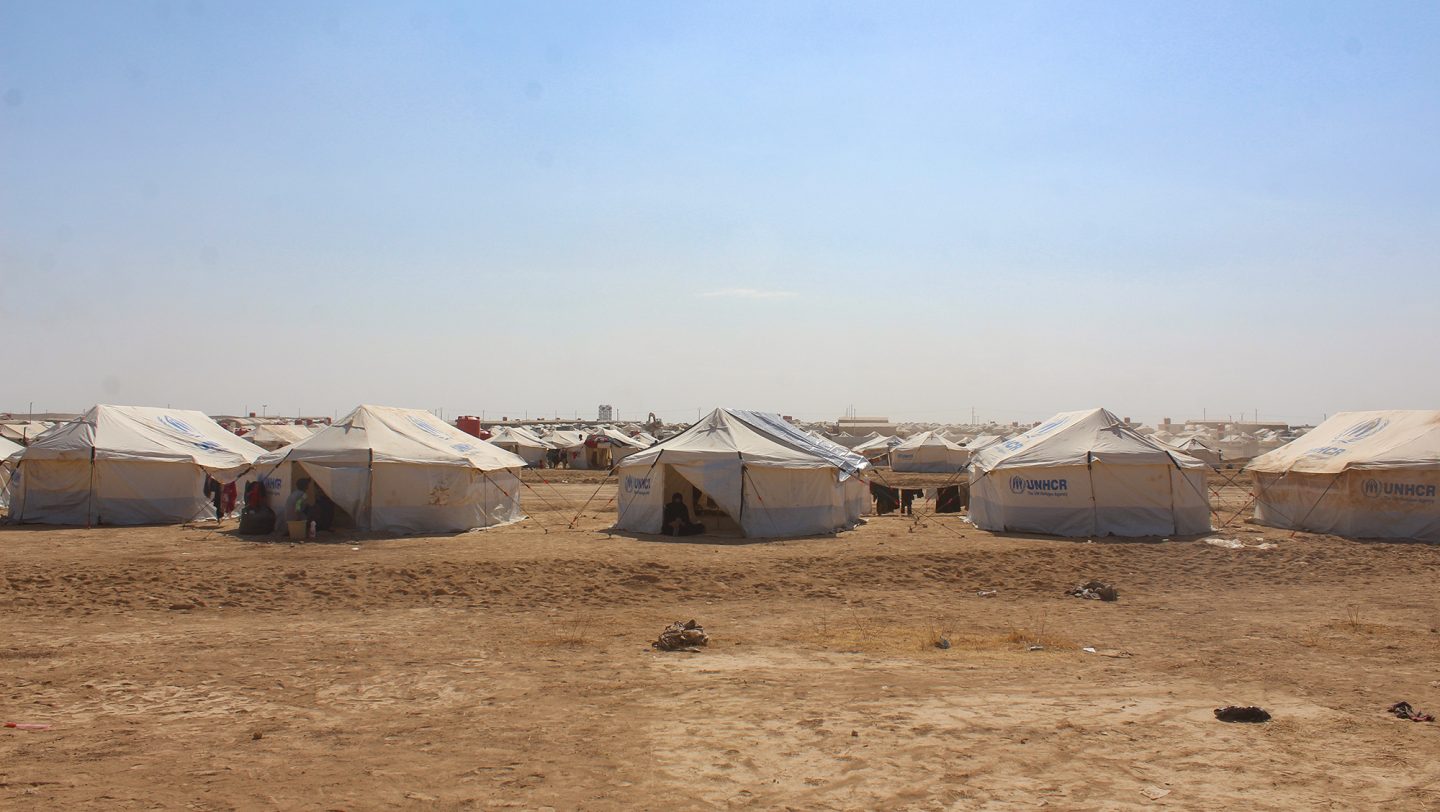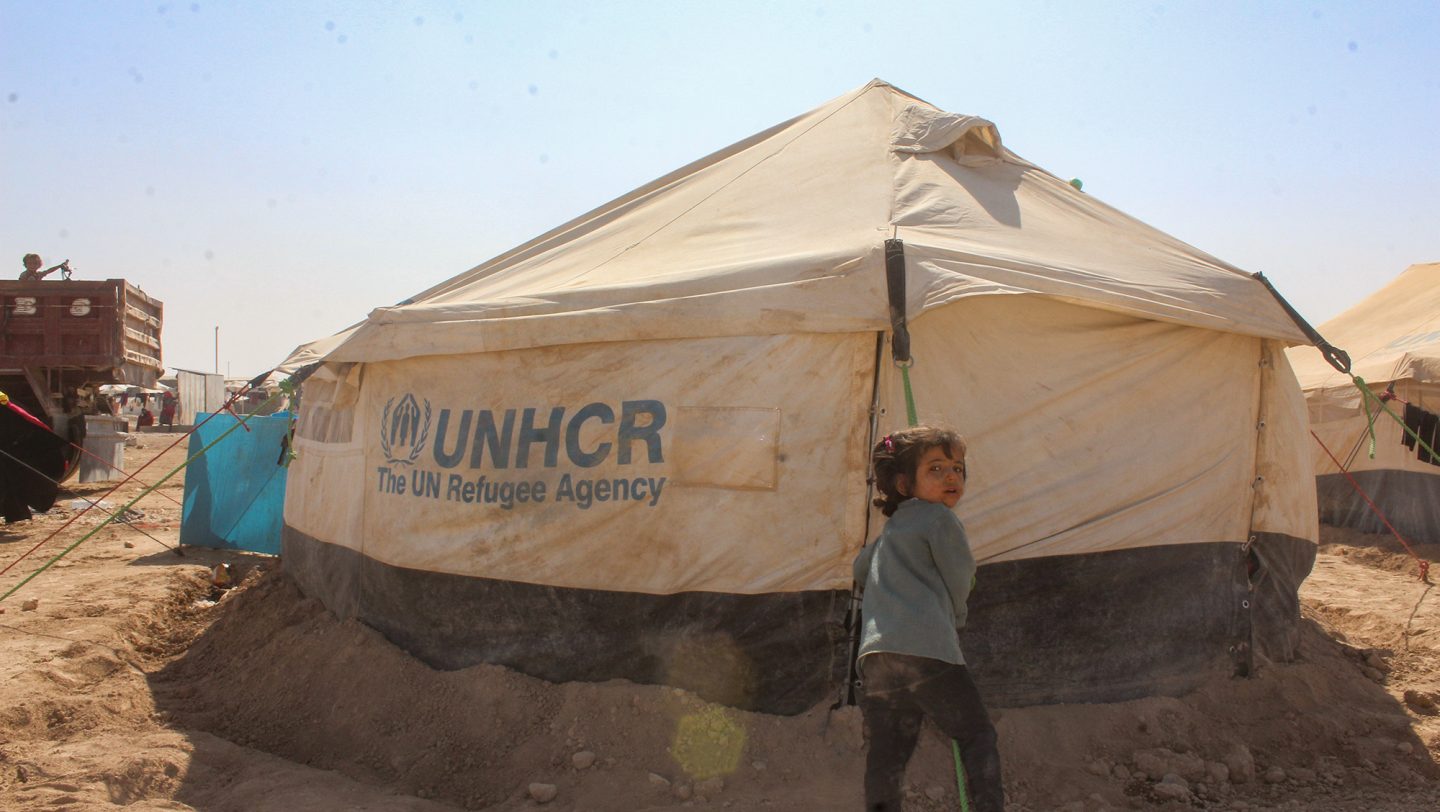Concerns about displaced people from Ar Raqqa, UNHCR provides response in northern Syria
UNHCR statement regarding the humanitarian response in northern Syria and Ar Raqqa
Hoping that the halt of armed conflict in Ar Raqqa will lead to an end of suffering for hundreds of thousands of displaced Syrians from Ar Raqqa since the beginning of April and were subjected to many dangers and threats to their lives. Many of them have lost loved ones, homes, belongings and livelihoods.
Many of the residents who were trapped in the city till the very bitter end, tell stories of horror and how they sustained injuries, bad health conditions, and were subjected to abuse, torture and were used as human shields by extremists. This resulted in death, injury and psychological trauma to many which usually takes a bigger toll on children and vulnerable people.
“Since Ar Raqqa battle in late 2016, civilians were exposed to mines, snipers, ground and air military operations, as they attempted to flee the city.”
Some residents spoke about very difficult living conditions with no running water, no electricity nor sanitation, food was scarce and drinking water was only available from local wells that had the risk of pollution, the lack of medical services and all the atrocities of war.
Sajjad Malik, UNHCR Representative who met with displaced people from Ar Raqqa and listened to their misery said: “Since Ar Raqqa battle in late 2016, civilians were exposed to mines, snipers, ground and air military operations, as they attempted to flee the city. Hundreds of civilians have been killed & injured, tens of thousands displaced, more than 80% of the city reportedly uninhabitable as a result of the fighting.” He continued, “We are deeply concerned as overall protection situation of civilians remains dire. Civilians must be protected.”
UNHCR has stepped up its response to assist all the new arrivals, ensuring they are well-received and given hot meals, water, shelter, core relief items, winter clothes, sleeping bags proper medical treatment, in addition to other vital services.
In the aftermath of the military operation, UNHCR warns that people risk death and injury due to mines and leftover unexploded ordnance.
Civilians may face other risks when going back to check on homes or buildings. These risks include the collapse of buildings in the city where its residents speak of widespread destruction and wide-scale damage to homes and infrastructure.
Still many displaced Syrians from Ar Raqqa and surrounding areas are living in dire conditions away from their homes in makeshift shelters and have been displaced several times bearing the agony of displacement, deprivation and the misery of all of their loses.
In the last few days, 39,910 displaced people arrived in the four camps (Areesha, Mabrouka, Ein Issa and Al-Hol), 16,021 in Areesha camp, 14,036 in Mabrouka camp, 4,489 in Ain Issa and 4,781 in Al Hol camp, in addition to 583 Iraqis in Al Hol camp. With the difficulties and some still existing gaps, UNHCR and partners were able to respond to the most urgent lifesaving needs, including the identification of all new arrivals.
We stand ready to support all those displaced and in need. UNHCR teams and partners are supplying all those in need with humanitarian assistance that includes non-food items, shelter and protection, with major focus on protection of civilians. UNHCR is working on the establishment of two new community centres, more income generating activities, livelihood programs and awareness sessions with advocacy and support for documentation and free legal aid and counselling and other education services.


